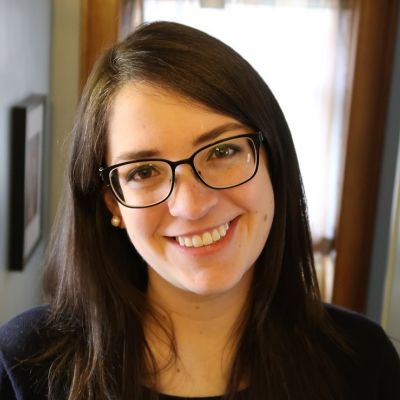
Carmen Fields
Edgewood Middle School
Trenton, Ohio
Instead of waiting to be told how and when in-person instruction could resume during the pandemic, Carmen Fields went into action. “When initial news reports linked an early coronavirus outbreak to a choir rehearsal, every music teacher knew we were in trouble,” she said.
Fields and her husband, Nick, who is the band director at Edgewood Middle School, read every report they could find on aerosolization of particles, participated in webinars and researched the square footage of different spaces at their schools. “We constructed a plan that met Butler County Health Department requirements and CDC guidelines,” Fields said. “We addressed how we could teach without performance in-person and remotely. We also included safe options for performance practice.”
Luckily, their administrators, recognizing the importance of music during the pandemic, offered outdoor classrooms as weather permitted and large spaces within the school for safe, socially distanced performance practice.
Even before the pandemic, Fields’ music classes were extremely popular with nearly a quarter of the student population enrolled in them. And she maintains a retention rate of well over 90 percent. In one of her “40 Under 40” nomination letters, Fields is described as an “exemplary” educator who “connects with each student and employs innovative learning techniques.”
Because Edgewood Middle School is in a small rural area, going to see live performances is not an option, so Fields started “Theatrical Thursdays” and “Fundamental Fridays” to bring more curriculum-based learning into the choir room. “By using quality recordings and examples, my students are able to travel virtually to these wonderful opportunities. Without realizing it, they are learning theory and advanced technique,” Fields said.
Fields also started a middle school show choir called Overtures with the choir director at the high school. “We gauged the support of parents and community and then drafted a proposal showing the need for such a program,” she said. “More than 100 students tried out for the 40 spots that first year, and we were off and running.”
Read Fields’ tips for succeeding as a music educator in a rural setting.








